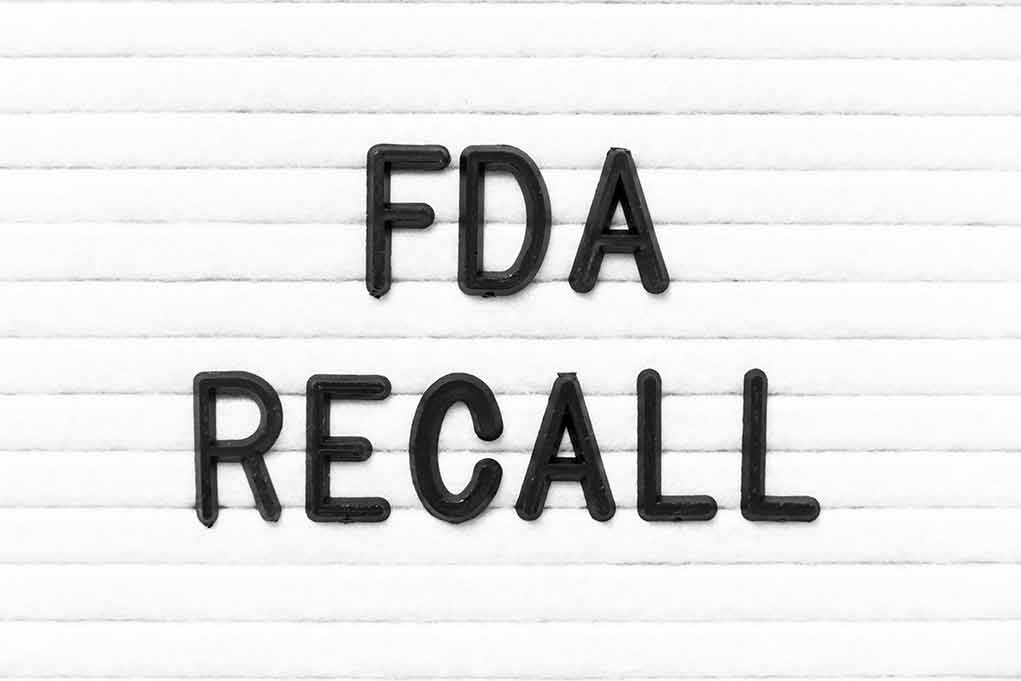
The FDA has recalled over 75,000 cases of popular eye drops that millions of Americans may be using right now, with experts unable to determine the exact health hazards posed by these potentially non-sterile products.
Key Takeaways
- FDA has recalled 76,000 cases of AvKare eye drops manufactured by BRS Analytical Services due to manufacturing deviations and sterility concerns
- Affected products were distributed from May 2023 through April 2025 with expiration dates ranging from April 2025 to March 2027
- The recall is classified as Class II, indicating potential temporary or medically reversible adverse health consequences
- Consumers should immediately stop using these products and can request a full refund including shipping costs
- The recall primarily affects artificial tears and carboxymethylcellulose-based ophthalmic solutions
Major Eye Drop Recall Raises Safety Concerns
The Food and Drug Administration has initiated a significant recall of over 75,000 cases of eye drop solutions manufactured by BRS Analytical Services and distributed by AvKare. The recall was triggered following an FDA audit that uncovered concerning deviations from current Good Manufacturing Practices (cGMP), raising serious questions about the sterility of these widely-used products. The FDA classifies this as a Class II recall, indicating that while not immediately life-threatening, these products may cause temporary or medically reversible adverse health consequences for users.
“Ophthalmic drug products potentially pose a heightened risk of harm to users because drugs applied to the eyes bypass some of the body’s natural defenses,” FDA officials stated.
The eye drops, primarily used to relieve dry and itchy eyes, were shipped throughout the country from May 2023 through April 2025, with expiration dates extending from April 2025 to March 2027. This extended timeframe means thousands of Americans may currently have these potentially compromised products in their medicine cabinets. AvKare has now instructed all suppliers and consumers to “immediately cease” using these products due to sterility concerns.
Affected Products and Consumer Action
The recall specifically targets various types of Artificial Tears Ophthalmic Solutions and Carboxymethylcellulose-based solutions, identifiable by their National Drug Code (NDC) numbers. These include commonly used formulations meant to provide relief for chronic dry eye sufferers. The recall extends “to the consumer level,” meaning anyone who purchased these products should take immediate action regardless of where they obtained them.
“The current health hazard posed to users of the eye drops is unknown, but possible risks cannot be ruled out,” AvKare representatives explained.
AvKare has established a formal recall protocol, urging consumers to “examine your inventory to determine if you have any of the lots” affected by this recall. The company is offering full credit for returns, including shipping costs, and has created a dedicated recall form for consumers to use when requesting refunds. This latest incident follows a troubling pattern of eye product recalls in recent years, raising questions about regulatory oversight of these sensitive healthcare products under the Biden administration.
Understanding the Health Risks
The FDA’s concerns center around manufacturing practices that failed to meet required standards for “identity, strength, quality and purity of drug products.” While the precise health hazard remains undefined, eye drops pose unique risks because they bypass many of the body’s natural protective mechanisms. Non-sterile eye products can potentially introduce bacteria directly into the eye, leading to infections ranging from mild irritation to serious conditions that could threaten vision.
“The preservative can cause the problems that the drop is supposed to help alleviate,” noted one health expert regarding certain eye drop formulations.
Eye health specialists emphasize that proper handling of all eye drops remains essential. This includes washing hands before application, avoiding contamination of the bottle tip, following dosage instructions carefully, and storing products according to manufacturer guidelines. The Mayo Clinic recommends that those experiencing persistent eye dryness undergo comprehensive eye exams and testing to determine underlying causes rather than relying exclusively on over-the-counter solutions. Anyone experiencing adverse effects after using eye drops should consult their doctor immediately.











